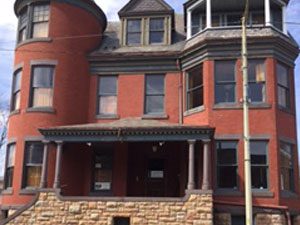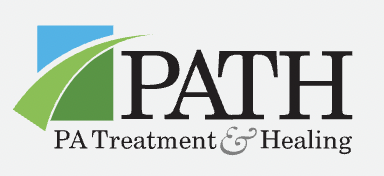PA Treatment and Healing (PATH)


Overview
PA Treatment and Healing (PATH) is a substance abuse treatment center for people seeking treatment near Lycoming County. As part of their treatment modalities for recovery, PA Treatment and Healing (PATH) provides cognitive behavioral therapy during treatment. PA Treatment and Healing (PATH) is located in Milton, Pennsylvania, accepting cash or self-payment for treatment.
PA Treatment and Healing (PATH) at a Glance
Payment Options
- Cash or self-payment
- Medicaid
- State-financed health insurance plan other than Medicaid
- Private health insurance
- Federal, or any government funding for substance use treatment programs
Assessments
- Screening for tobacco use
- Comprehensive substance use assessment
- Interim services for clients
- Outreach to persons in the community
- Screening for mental disorders
Age Groups
- Seniors or older adults
- Young adults
- Adults
Ancillary Services
- Suicide prevention services
- Early intervention for HIV
- Social skills development
Accreditations
SAMHSA certification for opioid treatment program (OTP):
Accreditation by the Substance Abuse and Mental Health Services Administration (SAMHSA) for Opioid Treatment Programs (OTPs) signifies that a program has met strict standards for providing high-quality care to individuals with opioid use disorders. It assures patients, families, and communities that the OTP follows evidence-based practices, employs qualified staff and maintains a safe and effective treatment environment. This accreditation reflects the program's commitment to addressing the opioid epidemic and promoting recovery.
Drug Enforcement Agency (DEA):
DEA accreditation refers to the process by which a law enforcement agency is recognized by the Drug Enforcement Agency (DEA) as having met specific training, operational, and resource requirements necessary to participate in DEA-led drug enforcement efforts. This accreditation allows the agency to perform DEA-related tasks such as conducting investigations, executing federal search warrants, and participating in joint task forces.
State department of health:

State Licenses, issued by government agencies, authorize rehabilitation organizations to legally operate within designated geographical areas. The specific licenses required for operation are typically determined by both the nature of the rehabilitation program provided by the facility and its physical location.
Treatment At PA Treatment and Healing (PATH)

Conditions Treated
24-Hour Clinical Care:
At certain points in the recovery process, it's important to have support available 24/7. 24-hour clinical care offers a safe environment in which to recover from drug or alcohol addiction in peace, knowing medical detox and other treatment will happen with professionals on hand.
Alcoholism:
Alcohol addiction is a condition where someone feels a strong and uncontrollable urge to drink alcohol, often leading to negative effects on their health, relationships, and daily life. To assist individuals grappling with alcohol addiction, various strategies exist. Initially, supervised detoxification may be necessary to ensure a safe cessation of alcohol consumption. Following this, counseling and therapy play a crucial role in addressing the psychological facets of the addiction. Engaging in support groups can also offer a sense of camaraderie and comprehension.
Substance use treatment:
Substance use rehabilitation is a comprehensive treatment approach designed to assist individuals struggling with addiction to drugs or alcohol. This form of rehabilitation addresses both the physical dependency, often starting with detoxification, and the psychological triggers, using various therapeutic methods. The objective is to empower individuals to achieve and maintain sobriety, while equipping them with the tools and coping strategies needed to reintegrate into society and lead a substance-free life.

Levels Of Care
Outpatient:
Outpatient programs are designed for individuals in stable medical condition with a low risk of relapse, often those who've completed inpatient treatment. These programs extend the foundation of prior treatment approaches, offering continuous addiction guidance and resources for sustained recovery. For those transitioning straight from detox, medical and psychological assessments are typically conducted, leading to the development of individualized treatment strategies. The majority of outpatient rehab centers provide diverse care levels, customized to each client's unique requirements.
Outpatient methadone/buprenorphine or naltrexone treatment:
Outpatient Methadone/Buprenorphine/Naltrexone Treatment Buprenorphine, marketed under brand names like Subutex, is a medication prescribed to combat opioid dependence. It can mitigate or substantially alleviate withdrawal symptoms, simplifying the process of discontinuing opioid use. Often administered in conjunction with naloxone, the dosage varies based on the intensity of each individual's situation. While many opt for extended use of buprenorphine, others taper down the dosage to eventually discontinue its use.
Regular outpatient treatment:
Regular outpatient treatment is a structured program that supports individuals in overcoming addiction while allowing them to maintain their daily lives. It includes therapy, counseling, and education, making it ideal for those with mild to moderate substance use disorders or in later recovery stages. This approach helps individuals build coping skills, manage triggers, and stay substance-free while staying connected to their communities and families.
Hospital inpatient/24-hour hospital inpatient:
During specific phases of the recovery journey, it becomes crucial to have around-the-clock support. 24-hour clinical care provides a secure setting for individuals to heal from drug or alcohol addiction, with the reassurance that medical detox and other treatments will be administered by skilled professionals.
Aftercare:
Finishing a drug or alcohol rehab program is not the conclusion of substance abuse treatment but rather a pivotal step toward long-term recovery. Aftercare encompasses devising a sustainable recovery plan coupled with enduring support. It may include sober living environments such as halfway houses, career counseling, and connecting patients with community support programs like Alcoholics Anonymous (AA) or Narcotics Anonymous (NA). This holistic approach ensures a smooth transition into a substance-free life while bolstering resilience against relapse.

Treatment Modalities
Cognitive behavioral therapy:
Cognitive Behavioral Therapy (CBT) is a evidence-based psychological treatment that focuses on identifying and challenging negative thought patterns and behaviors. It aims to develop coping strategies and promote healthier thinking to address a variety of mental health issues, such as depression, anxiety, and stress. CBT is typically short-term and goal-oriented, emphasizing the role of thought processes in influencing emotions and behaviors.
Telemedicine/telehealth therapy:
Telehealth Therapy allows individuals to access mental health services remotely via secure video conferencing. This level of care offers qualified therapy from the comfort of one's home, removing geographical barriers and often reducing wait times. Ideal for those with mobility challenges, tight schedules, or those in rural areas, it combines convenience with consistent, high-quality mental health support.
Substance use disorder counseling:
Substance use disorder counseling treatment modalities refer to various approaches and methods used in the counseling and treatment of individuals with substance use problems. This can include individual therapy, group therapy, cognitive behavioral therapy, motivational interviewing, family therapy, and 12-step programs. The goal is to help the individual overcome their substance use, develop healthy coping skills, and lead a fulfilling life in recovery.
Trauma-related counseling:
Trauma therapy addresses the deep-seated emotional and psychological wounds often linked with substance abuse disorders. Recognizing that traumatic experiences can be a root cause or a significant contributing factor to substance addiction, this therapeutic approach seeks to help individuals understand, process, and heal from their traumas. Doing so fosters emotional healing and bolsters the individual's chances of long-term recovery from addiction. Integrating trauma-informed care into addiction treatment ensures a comprehensive approach that addresses substance abuse's symptoms and underlying causes.
Group counseling:
Group Counseling is a therapeutic approach where individuals come together under the guidance of a trained counselor to share experiences, provide mutual support, and gain insights. It fosters a sense of community, promotes understanding through diverse perspectives, and offers personal growth and problem-solving strategies.
Family counseling:
Family Counseling is a therapeutic service that addresses and resolves conflicts, improves communication, and fosters better relationships within a family unit. Through guided discussions, a trained counselor helps family members gain insight into their dynamics, learn coping strategies, and work towards creating a harmonious living environment. Family Counseling can be a significant step towards improving the overall emotional health and interactions among family members, helping them navigate challenges together in a supportive and constructive manner.
Marital/couples counseling:
Marital/couples counseling treatment modalities refer to various therapeutic approaches used to help couples resolve conflicts, improve communication, and strengthen their relationship. These modalities can include cognitive-behavioral therapy, emotionally focused therapy, solution-focused therapy, and integrative approaches. The goal of these treatments is to help couples identify and address underlying issues and develop healthy relationship dynamics.
12-step facilitation:
Recovery approaches rooted in 12-step programs prioritize extensive peer mentorship and highlight personal development as a cornerstone for maintaining sobriety. Attending 12-step meetings, which are confidential, cost-free, and held daily, is a fundamental component. The 12 steps are grounded in spiritual tenets, guiding participants to confront the core issues of their addiction, assume accountability for their decisions, and recognize aspects out of their control. Chosen sponsors offer individualized guidance and support.
Intervention Services:
Intervention refers to organized efforts designed to guide individuals away from potentially harmful behaviors or decisions and towards healthier alternatives. Often used in the context of substance abuse or addiction, these services employ a structured approach where professionals, loved ones, and peers come together to confront the individual in a supportive manner, emphasizing the need for change and providing pathways for treatment or assistance. The goal is to break through denial, facilitate recognition of the problem, and initiate positive change.
Motivational interviewing:
Motivational Interviewing (MI) in addiction treatment is a client-centered counseling style aimed at promoting behavior change by helping clients explore and resolve ambivalence. Through empathetic engagement and evoking change talk, MI empowers individuals to harness their own motivation to overcome addiction, leading to a self-directed path to recovery. This approach respects individual autonomy while supporting positive change in a compassionate, non-confrontational manner.
Relapse prevention:
The Relapse Prevention Model is a cognitive-behavioral approach aimed at minimizing or preventing relapses in individuals recovering from addictive behaviors. It incorporates strategies for recognizing and managing high-risk situations and triggers, enhancing self-efficacy, and developing coping skills. Through education, awareness, and self-monitoring, individuals are empowered to maintain their progress and avoid reverting to unhealthy behaviors. This model is essential in promoting long-term recovery and supporting individuals on their journey towards a substance-free life.
Treatment for other addiction disorder:
Treatment for other addiction disorders typically involve a combination of therapy and medication. This may include individual therapy, group therapy, and behavioral therapy. Medications may be prescribed to help manage symptoms and reduce cravings. Additionally, support groups and aftercare programs can be beneficial in maintaining recovery and preventing relapse. The treatment modality should be tailored to the individual's specific needs and circumstances.
Individual psychotherapy:
Individual Psychotherapy provides a private, one-on-one setting where clients can explore and address their personal challenges, behaviors, and feelings related to addiction and recovery. With the guidance of a trained therapist, clients work to uncover the root causes of their substance use, develop coping strategies, and build a foundation for long-term recovery and personal growth.
Ancillary Services
Additional Services
- Pharmacotherapies administered during treatment
- Housing services
- Drug or alcohol urine screening
Special Programs
- Veterans
- Active duty military
- Members of military families
- Criminal justice (other than DUI/DWI)/Forensic clients
- Pregnant/postpartum women
Contact Information
DISCLAIMER: The facility name, logo and brand are the property and registered trademarks of PA Treatment and Healing (PATH), and are being used for identification and informational purposes only. Use of these names, logos and brands shall not imply endorsement. BetterAddictionCare.com is not affiliated with or sponsored by PA Treatment and Healing (PATH).

